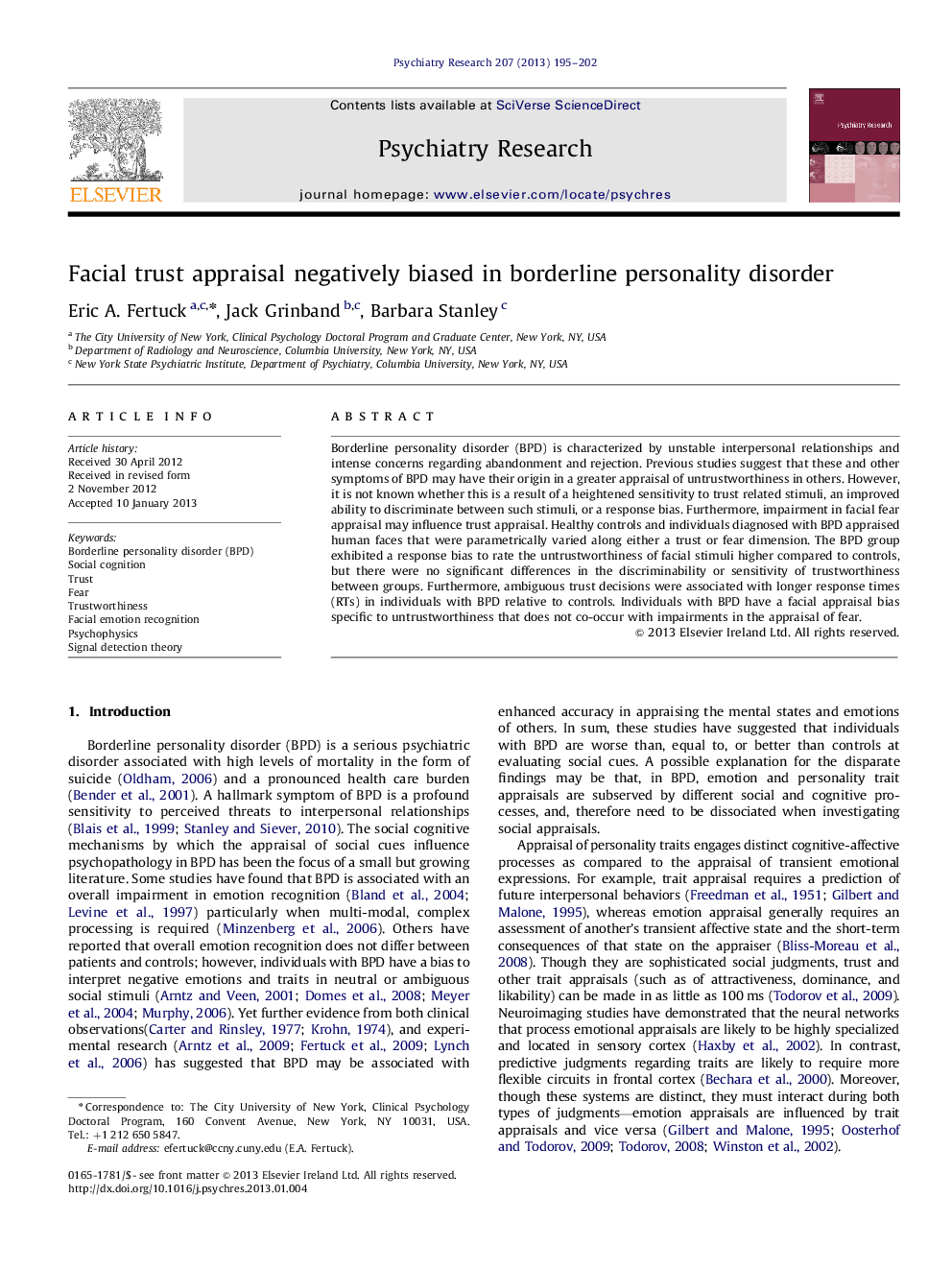| Article ID | Journal | Published Year | Pages | File Type |
|---|---|---|---|---|
| 332118 | Psychiatry Research | 2013 | 8 Pages |
Borderline personality disorder (BPD) is characterized by unstable interpersonal relationships and intense concerns regarding abandonment and rejection. Previous studies suggest that these and other symptoms of BPD may have their origin in a greater appraisal of untrustworthiness in others. However, it is not known whether this is a result of a heightened sensitivity to trust related stimuli, an improved ability to discriminate between such stimuli, or a response bias. Furthermore, impairment in facial fear appraisal may influence trust appraisal. Healthy controls and individuals diagnosed with BPD appraised human faces that were parametrically varied along either a trust or fear dimension. The BPD group exhibited a response bias to rate the untrustworthiness of facial stimuli higher compared to controls, but there were no significant differences in the discriminability or sensitivity of trustworthiness between groups. Furthermore, ambiguous trust decisions were associated with longer response times (RTs) in individuals with BPD relative to controls. Individuals with BPD have a facial appraisal bias specific to untrustworthiness that does not co-occur with impairments in the appraisal of fear.
